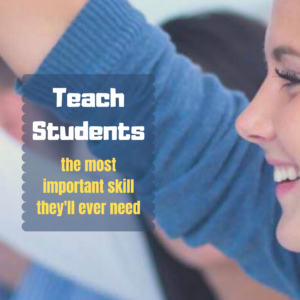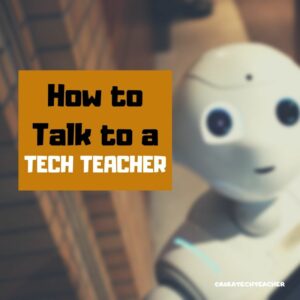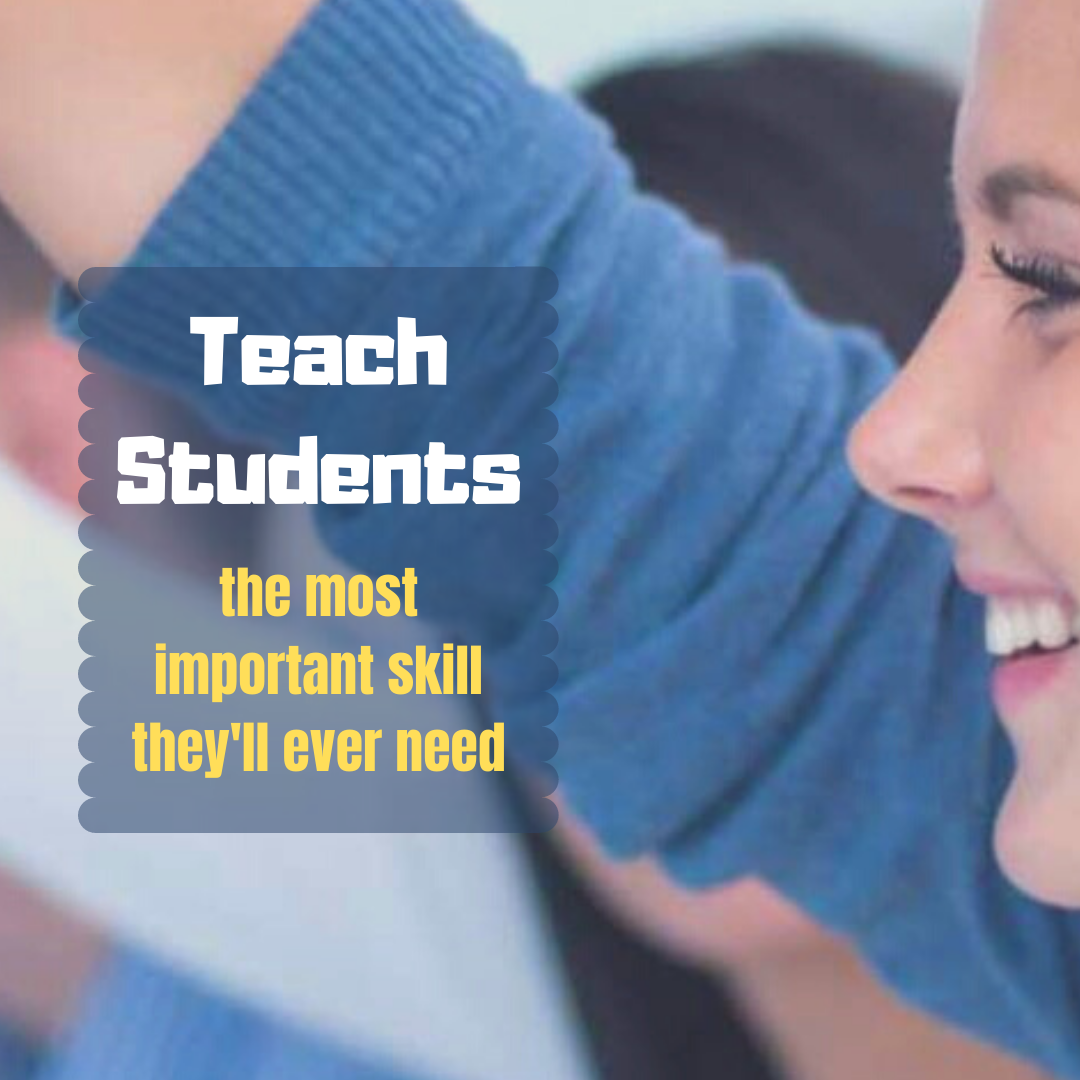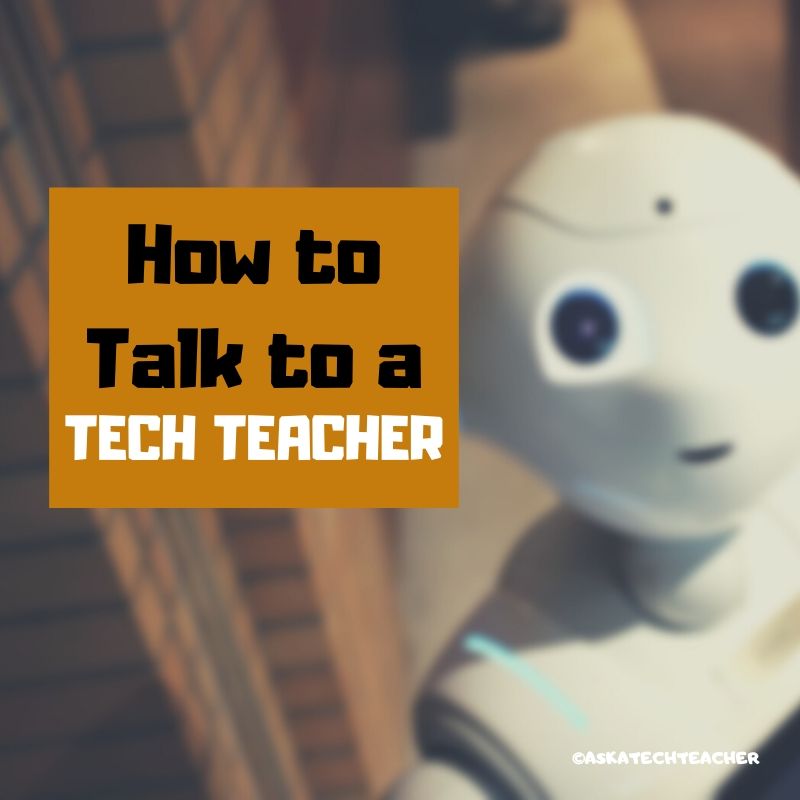Category: Teaching
Inspire Young Writer’s with Young Writers Program
A warm welcome to Sean Clark, Instructional Aide, and his first time contributing to Ask a Tech Teacher. He’s also a Teacher-Author with a wonderful experience involving his students in November’s NaNoWriMo Young Writers Program:
School-age kids these days are bridging huge linguistic and literary gaps almost every day: reading books checked out from the school library, but also online assignments, texts, and instant messages from parents and classmates. They’re learning cursive and concurrently expected to raise their words-per-minute on the QWERTY layout, possibly both in the span of one week. They must know an adjective from an adverb, but also a header from a heading.
 My name is Sean Clark, bearing the official title of Technology Instructional Aid, though most of the time around the school, I am referred to simply as ‘the tech guy.’ I’m one of several at the elementary level holding this job description in my district where 1:1 devices are now the norm. On that gap described earlier, the teaching of the latter half is my responsibility. Before current events transpired, my work week involved heading to each classroom to give a lesson on whatever I had made up for the day; typing, coding, docs, slides, or other various thematic and interactive activities I’d discovered through sites like Ask a Tech Teacher.
My name is Sean Clark, bearing the official title of Technology Instructional Aid, though most of the time around the school, I am referred to simply as ‘the tech guy.’ I’m one of several at the elementary level holding this job description in my district where 1:1 devices are now the norm. On that gap described earlier, the teaching of the latter half is my responsibility. Before current events transpired, my work week involved heading to each classroom to give a lesson on whatever I had made up for the day; typing, coding, docs, slides, or other various thematic and interactive activities I’d discovered through sites like Ask a Tech Teacher.
Outside of work, I’m still connected to technology, often for playing games, but also in the pursuit of satisfying my creative mind by typing out my thoughts into stories, and sometimes turning those stories into novels. I run a writer’s blog by the name of Fifty Shades of Grease, a title birthed from a time where I worked a less glamorous job in a deli. In my blog, I archive many of my short stories, as well as track progress on other, bigger works that get the full run-down to be turned into proper ebook and paperback novels. To date, I’ve self-published two trilogies, a short story, and a literary collection.
I’ve been writing on and off properly since community college when a guest teacher running the English 1A class revealed the wonders of creative writing, rather than just the regurgitation of rhetoric that High School had taught me to focus on. At some point that semester, I had a flashback to 4th grade when I was voted ‘most likely to become a writer.’ It wasn’t until after graduating from University five-and-some years later that I finally found the time and motivation to write a complete story from beginning to end. At that point, I knew I couldn’t stop at just one.
 My biggest outlet of story writing energy is the National Novel Writing Month- abbreviated to NaNoWriMo– community. Running two short events during the summer, and a full-fledged 50-thousand-word writing sprint in November, writers find themselves bound by their own honor to write more-or-less every day in order to meet their goals. Since joining the community a few years ago, I have not missed a single session.
My biggest outlet of story writing energy is the National Novel Writing Month- abbreviated to NaNoWriMo– community. Running two short events during the summer, and a full-fledged 50-thousand-word writing sprint in November, writers find themselves bound by their own honor to write more-or-less every day in order to meet their goals. Since joining the community a few years ago, I have not missed a single session.
So, you’re probably wondering- how do my tech lessons and my students fit into this? Personally, I’ve enjoyed the chance to bring in my own books to read from for various classes. While it is slightly self-aggrandizing, the message that I hope students can find is that with the proper effort and dedication, they can produce something unequivocally theirs (a sentiment not only limited to writing, of course). In fact, the NaNoWriMo community can serve such minds just the same, with a special space all its own for school-age children wanting to attempt something so grand as writing an entire story; the Young Writers Program. Rather than being thrown in with strangers and set up with strict goals, the YWP allows a teacher to curate a class with a class code, ready to be set to run for any month, any topic, and any word count.
When we began teaching at a distance this spring, over Zooms and Google Classrooms and less-than-ideal Youtube lessons recorded from Chromebook cameras, this program was one of the first I jumped on to offer as a tech lesson. Maybe it was the lack of a stimulating home environment, growing burnout out from Cool Math Games, or just having the desire to create something original, but more than a few became truly engaged in their newfound project.
Share this:
- Click to share on Facebook (Opens in new window) Facebook
- Click to share on X (Opens in new window) X
- Click to share on LinkedIn (Opens in new window) LinkedIn
- Click to share on Pinterest (Opens in new window) Pinterest
- Click to share on Telegram (Opens in new window) Telegram
- Click to email a link to a friend (Opens in new window) Email
- More
Teacher-Authors–Do You Write Fiction?
xx
Teacher-authors–do you write fiction? I do! And it feeds my soul in the same way that teaching does.
[gallery type="slideshow" ids="62826,62827,62828,62829,62825,62830"]
Two of my novels–To Hunt a Sub and Twenty-four Days–are tech thrillers so fit well into my geeky tech-teacher world. The rest deal with how man survived the traumas of prehistoric times.
xx
I feature my fiction writing over at WordDreams.
xx
If you are a teacher who also writes fiction, I’d love to feature your book on WordDreams. I have a good readership with lots of interest in Indie authors. I’m opening up comments so you can add a note there. If you’d prefer, contact me at askatechteacher at gmail dot com.
Talk soon!
Share this:
- Click to share on Facebook (Opens in new window) Facebook
- Click to share on X (Opens in new window) X
- Click to share on LinkedIn (Opens in new window) LinkedIn
- Click to share on Pinterest (Opens in new window) Pinterest
- Click to share on Telegram (Opens in new window) Telegram
- Click to email a link to a friend (Opens in new window) Email
- More
5 Ideas for Teaching Students the Most Important Skill They’ll Need
Every teacher I know understands it’s not the 3R’s or science or even history that provides fundamental skills for thriving in life. If you doubt that, read the quote below from a Harvard professor about the half-life of learned skills. No, it’s something more basic, more intuitive, and happens to be the holy grail of teacher goals for students.
Learn how to learn
Here’s how to make this easy, from an Ask a Tech Teacher contributor:
***
 In the past, a university degree provided a majority of graduates with the skills they needed to succeed in their chosen careers. In the 2020s, this is no longer the case. Today, according to research conducted by Harvard Business Review and Deloitte, a college degree typically provides students with skills that have a half-life of only 5 years.
In the past, a university degree provided a majority of graduates with the skills they needed to succeed in their chosen careers. In the 2020s, this is no longer the case. Today, according to research conducted by Harvard Business Review and Deloitte, a college degree typically provides students with skills that have a half-life of only 5 years.
That means it won’t be long before even college-educated employees will need to upskill or retrain to remain employable.
The main takeaway: Learning how to learn is the single most important skill that our students will need to master if they hope to participate meaningfully in the fast-paced, technology-driven workplace of the future.
Yet many students do not have a solid understanding of how to effectively go about the process of upskilling. According to research published in the Instructional Science journal, individual students experience a broad variety of differentiation in their understanding of how to undertake the learning process. Sadly, it is possible for some students to make it all the way through twelfth grade without ever fully grasping the basics of how to learn.
In hindsight, it’s easy to see how this could happen. As educators, we are each tasked with teaching our students a specific body of knowledge. The knowledge typically encompasses highly focused topics such as reading or math or biology. We know our students will be tested on the knowledge that we’ve been trusted to impart to them. Our livelihoods directly depend on whether or not they will excel at the resulting tests. There isn’t room in our workdays to deviate far from the material that will be covered on the tests.
Rarely, it seems, is anybody ever specifically tasked with teaching students a step-by-step course in how to learn. Yet, collectively, if we fail to teach them this skill, we ultimately fail in our mission to equip our students with the skills they’ll need to succeed in their careers — and also to succeed as functioning members of a technologically advanced society.
How, then, can we take action to teach our students how to learn? The following are five ideas we might each have the opportunity to implement as we approach the task of teaching our everyday curriculum to our students:
Share this:
- Click to share on Facebook (Opens in new window) Facebook
- Click to share on X (Opens in new window) X
- Click to share on LinkedIn (Opens in new window) LinkedIn
- Click to share on Pinterest (Opens in new window) Pinterest
- Click to share on Telegram (Opens in new window) Telegram
- Click to email a link to a friend (Opens in new window) Email
- More
Teacher Appreciation Week Gifts for the Tech Teacher in Your Life
Teacher Appreciation Week: The First Full Week of May
 There’s always been something mystically cerebral about people in technical professions like engineering, science, and mathematics. They talk animatedly about plate tectonics, debate the structure of atoms, even smile at the mention of calculus. The teaching profession has our own version of these nerdy individuals, called technology teachers. In your district, you may refer to them as IT specialists, Coordinators for Instructional Technology, Technology Facilitators, Curriculum Specialists, or something else that infers big brains, quick minds, and the ability to talk to digital devices. School lore probably says they can drop a pin through a straw without touching the sides.
There’s always been something mystically cerebral about people in technical professions like engineering, science, and mathematics. They talk animatedly about plate tectonics, debate the structure of atoms, even smile at the mention of calculus. The teaching profession has our own version of these nerdy individuals, called technology teachers. In your district, you may refer to them as IT specialists, Coordinators for Instructional Technology, Technology Facilitators, Curriculum Specialists, or something else that infers big brains, quick minds, and the ability to talk to digital devices. School lore probably says they can drop a pin through a straw without touching the sides.
When I started teaching K-8 technology, people like me were stuffed in a corner of the building where all other teachers could avoid us unless they had a computer emergency, pretending that what we did was for “some other educator in an alternate dimension”. Simply talking to us often made a colleague feel like a rock, only dumber. When my fellow teachers did seek me out — always to ask for help and rarely to request training — they’d come to my room, laptop in hand, and follow the noise of my fingers flying across the keyboard. It always amazed them I could make eye contact and say “Hi!” without stopping or slowing my typing.
That reticence to ask for help or request training changed about a decade ago when technology swept across the academic landscape like a firestorm:
Share this:
- Click to share on Facebook (Opens in new window) Facebook
- Click to share on X (Opens in new window) X
- Click to share on LinkedIn (Opens in new window) LinkedIn
- Click to share on Pinterest (Opens in new window) Pinterest
- Click to share on Telegram (Opens in new window) Telegram
- Click to email a link to a friend (Opens in new window) Email
- More
8 EdTech Trends to Watch Out for This 2020
 As always, education is changing. There are so many new ways to differentiate for varied learners, back-fill for some while enriching others without slowing anyone down. Being a teacher and a learner today is awe-inspiring. Ask a Tech Teacher contributor, Wally Clipper, has a great run-down on 8 trends you’ll want to watch in 2020:
As always, education is changing. There are so many new ways to differentiate for varied learners, back-fill for some while enriching others without slowing anyone down. Being a teacher and a learner today is awe-inspiring. Ask a Tech Teacher contributor, Wally Clipper, has a great run-down on 8 trends you’ll want to watch in 2020:
8 EdTech Trends to Watch Out for This 2020
Technology has vastly disrupted and improved numerous sectors around the world, be it the government and banking, or retail and marketing. Unsurprisingly, technology is also impacting the world of education. In fact, a study on Forbes found that global education technology (EdTech) is one of the fastest-growing segments today, and is expected to be worth $252 billion by the end of this year.
While EdTech has been helping schools and other educational institutions a lot since it was introduced, its benefits have grown even more this year. From digital certificates to learning analytics, here are eight EdTech trends to look forward to in the coming months.
Video-assisted Learning
Gone are the days when teachers had to drag TVs into classrooms to let students watch films. Now, nearly every classroom is at least equipped with a screen and projector. Additionally, Chron reports that some schools have even replaced the usual blackboard and whiteboard with smartboards this year. These devices double as both a whiteboard and a screen. Plus, they have apps that let you interact with whatever’s projected onto them with the touch of a finger.
Share this:
- Click to share on Facebook (Opens in new window) Facebook
- Click to share on X (Opens in new window) X
- Click to share on LinkedIn (Opens in new window) LinkedIn
- Click to share on Pinterest (Opens in new window) Pinterest
- Click to share on Telegram (Opens in new window) Telegram
- Click to email a link to a friend (Opens in new window) Email
- More
How to Talk to a Tech Teacher
 There’s always been something mystical about people in technical professions–engineering, science, mathematics. They talk animatedly about plate tectonics, debate the structure of mathematical functions, even smile at the mention of calculus. The teaching profession has their own version of these individuals, called ‘technology teachers’. They used to be stuffed in a corner of the school where most teachers could pretend they didn’t exist, that what they did was for ‘some other educator in an alternate dimension’.
There’s always been something mystical about people in technical professions–engineering, science, mathematics. They talk animatedly about plate tectonics, debate the structure of mathematical functions, even smile at the mention of calculus. The teaching profession has their own version of these individuals, called ‘technology teachers’. They used to be stuffed in a corner of the school where most teachers could pretend they didn’t exist, that what they did was for ‘some other educator in an alternate dimension’.
That all changed when technology swept across the academic landscape like a firestorm:
- iPads became the device of choice in the classroom
- Class screens became more norm than abnorm(al)
- Technology in the classroom changed from ‘nice to have’ to ‘must have’
- 1:1 became a realistic goal
- Students researched online as often as in the library
- Students began spending as much time in a digital neighborhood as their home town
- Textbooks morphed into resources rather than bibles
Today, teachers who don’t use technology are an endangered species. Often, they’re too young to retire, so they get a digital map from a colleague to that place where they’ve been told they’ll find help–from a person variously called the ‘tech teacher’, ‘integration specialist’, or ‘tech coordinator’.
As they enter the room, they figure the person they’re looking for must be the one who looks up as they enter, fingers flying across the keyboard, never pausing and never slowing even as she smiles and says, ‘Hi!’.
Before you ask your question, I have a short list of signs that will help you have a more positive experience when you confront this big-brained Sheldon-look-like:
- You can’t scare them (in fact, even Admin and politics don’t frighten them). They’re techies. Try kindness instead.
- Patience and tech are oxymorons. Know that going in.
- Bring food. Techies often forget to eat, or ate everything in their snack stash and need more.
- Some days, tech looks a lot like work. Distract them with an interesting problem.
- Start the encounter with a discussion on Dr. Who, Minecraft, or Big Bang Theory. Find a clever tie-in to your topic.
- Understand that tech teachers often think trying to teach teachers to tech is like solving the Riemann Hypothesis (many consider it impossible). Bone up on basics before the Meeting.
- Life after the 100th crashed computer is what Oprah might call a life-defining moment. If that just happened as you walked through the door, turn around and come back another time.
- Understanding a techie who’s in the zone is like understanding the meaning of life. Again–leave the room; come back later.
Share this:
- Click to share on Facebook (Opens in new window) Facebook
- Click to share on X (Opens in new window) X
- Click to share on LinkedIn (Opens in new window) LinkedIn
- Click to share on Pinterest (Opens in new window) Pinterest
- Click to share on Telegram (Opens in new window) Telegram
- Click to email a link to a friend (Opens in new window) Email
- More
Lessons Learned My First 5 Years Of Teaching
It’s always interesting to find out what new teachers learned in their early teaching that affected their later years. Here’s Elaine Vanessa’s take on that–5 bits of wisdom she acquired while surviving the early teaching years:
 My first five years of teaching were the shortest and longest years of my life. I was living the best and the worst time simultaneously. However, it was the most memorable time of my life that I don’t want to forget. Also, those five years made me a well-groomed educator and a better person in my life.
My first five years of teaching were the shortest and longest years of my life. I was living the best and the worst time simultaneously. However, it was the most memorable time of my life that I don’t want to forget. Also, those five years made me a well-groomed educator and a better person in my life.
Every teacher has a dream of having a classroom with respectful kids having fun activities and love while learning. It makes teaching easy if kids love to be in the room every day. However, my first years were not like that. As I continued, I got better every year. There was one thing consistent; learning. Below are five lessons that I have learned in my first five years of teaching. I am sharing them in the hope of being a candle in someone’s darkroom.
1. Finding work/life balance is a process
You cannot work for more than 8 hours every day. You can burn out of exhaustion and fatigue. I have my husband to keep pushing me unless I would have been stuck within the first six months. I learned to keep my school work at school and find personal time at home with my family. You may need to work at home sometimes, but I recommend not making it a habit. Finding work-life balance is not easy; however, it must be a prior goal to achieve and maintain.
2. Take time to get to know your students
Investing your time in understanding and taking care of your students will going to pay you ten folds off. It is not very tough to strike up a conversation with your students, make sure to ask relevant questions, and make a personal connection with them. It is also essential to make them aware of yourself, your family, and your experiences. This will help them to see a real inspirational person in you. Your openness will let them feel comfortable to ask for advice and help. Also, it will create a relationship of trust and respect by letting them explore and encourage them to try something new every day.
Share this:
- Click to share on Facebook (Opens in new window) Facebook
- Click to share on X (Opens in new window) X
- Click to share on LinkedIn (Opens in new window) LinkedIn
- Click to share on Pinterest (Opens in new window) Pinterest
- Click to share on Telegram (Opens in new window) Telegram
- Click to email a link to a friend (Opens in new window) Email
- More
What You Might Have Missed in September
Here are the most-read posts for the month of September:
- 21 Websites and 5 Posters to Teach Mouse Skills
- Teacher-Author? Me too! Let’s talk
- College Credit Classes in Blended Learning
- Great Activities for the First Week of School
- 20 Back-to-School Articles
- 12 Favorite PC Shortkeys
- Tech Ed Resources for your Class–Digital Citizenship
Jacqui Murray has been teaching K-18 technology for 30 years. She is the editor/author of over a hundred tech ed resources including a K-12 technology curriculum, K-8 keyboard curriculum, K-8 Digital Citizenship curriculum. She is an adjunct professor in tech ed, Master Teacher, an Amazon Vine Voice reviewer, CSTA presentation reviewer, freelance journalist on tech ed topics, a weekly contributor NEA Today, and author of the tech thrillers, To Hunt a Sub and Twenty-four Days. You can find her resources at Structured Learning.
Share this:
- Click to share on Facebook (Opens in new window) Facebook
- Click to share on X (Opens in new window) X
- Click to share on LinkedIn (Opens in new window) LinkedIn
- Click to share on Pinterest (Opens in new window) Pinterest
- Click to share on Telegram (Opens in new window) Telegram
- Click to email a link to a friend (Opens in new window) Email
- More
What You Might Have Missed in August
Here are the top five posts for the month of August:
- Basics of internet safety
- Why Kindergartners Must Learn Technology
- Classroom tech resources
- How Behaviorism can turn your classroom around
- eSpark–Self-paced Learning for Math and Reading
Jacqui Murray has been teaching K-18 technology for 30 years. She is the editor/author of over a hundred tech ed resources including a K-12 technology curriculum, K-8 keyboard curriculum, K-8 Digital Citizenship curriculum. She is an adjunct professor in tech ed, Master Teacher, webmaster for four blogs, an Amazon Vine Voice, CSTA presentation reviewer, freelance journalist on tech ed topics, contributor to NEA Today, and author of the tech thrillers, To Hunt a Sub and Twenty-four Days. You can find her resources at Structured Learning.
Share this:
- Click to share on Facebook (Opens in new window) Facebook
- Click to share on X (Opens in new window) X
- Click to share on LinkedIn (Opens in new window) LinkedIn
- Click to share on Pinterest (Opens in new window) Pinterest
- Click to share on Telegram (Opens in new window) Telegram
- Click to email a link to a friend (Opens in new window) Email
- More
10 Myths about Teaching with Tech
 I’ve been teaching technology for over fifteen years. While student familiarity with this tool has improved, one thing that never varies is the myths surrounding teaching with it. It’s a constant struggle with parents and colleagues who have far more enthusiasm regarding this subject than expertise. Just when I think I’ve got everyone coloring between the lines, things change and I have to get a different paintbrush.
I’ve been teaching technology for over fifteen years. While student familiarity with this tool has improved, one thing that never varies is the myths surrounding teaching with it. It’s a constant struggle with parents and colleagues who have far more enthusiasm regarding this subject than expertise. Just when I think I’ve got everyone coloring between the lines, things change and I have to get a different paintbrush.
Here are ten of the most common face-palming, head-slapping myths that I have to correct:
Kids are digital natives. They get it.
Let’s look at that term, “digital native”. Techopedia defines it as:
a person born or brought up during the age of digital technology and therefore familiar with computers and the Internet from an early age.
I agree about the familiarity. When these “digital natives” show up in my classroom, they have played with iPads and their parents’ smartphones enough to know how to swipe, tap, squeeze, and shake, but they know none of the nuances required to morph the device from a toy to a productivity tool. This is contrary to popular belief — that being raised with iPads means they understand all about them.
To be fair, kids who use technology regularly at home do have both a baseline set of skills and a fearless enthusiasm for anything with a screen and a power button. We adults envy that confidence, so unlike our abject fear that simply touching the device wrong will break it.
But what kids possess is bravado, not knowledge. Knowledge must be taught.
It’s important to remember that lots of kids aren’t raised with technology. The New York Post reported in 2018 that as many as 5 million schoolage children have no Internet access. The reasons vary, everything from their parents don’t believe in it, can’t afford it, don’t trust it, or have no way to connect to the Internet, but the result is the same: No technology for kids considered to be the “digital native” generation.
Share this:
- Click to share on Facebook (Opens in new window) Facebook
- Click to share on X (Opens in new window) X
- Click to share on LinkedIn (Opens in new window) LinkedIn
- Click to share on Pinterest (Opens in new window) Pinterest
- Click to share on Telegram (Opens in new window) Telegram
- Click to email a link to a friend (Opens in new window) Email
- More












































